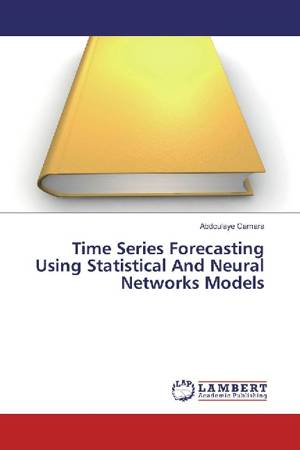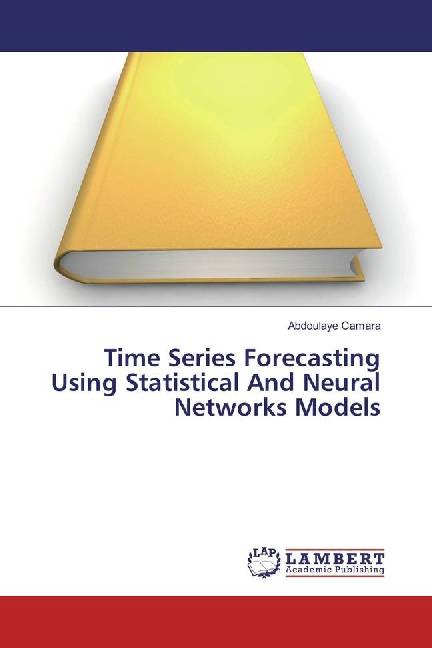
Je cadeautjes zeker op tijd in huis hebben voor de feestdagen? Kom langs in onze winkels en vind het perfecte geschenk!
- Afhalen na 1 uur in een winkel met voorraad
- Gratis thuislevering in België vanaf € 30
- Ruim aanbod met 7 miljoen producten
Je cadeautjes zeker op tijd in huis hebben voor de feestdagen? Kom langs in onze winkels en vind het perfecte geschenk!
- Afhalen na 1 uur in een winkel met voorraad
- Gratis thuislevering in België vanaf € 30
- Ruim aanbod met 7 miljoen producten
Zoeken
Time Series Forecasting Using Statistical And Neural Networks Models
Abdoulaye Camara
Paperback | Engels
€ 49,45
+ 98 punten
Omschrijving
Forecasting is a common statistical task in many areas, where it contributes to inform decisions about the scheduling of production, transportation, personnel, etc. And it provides a guide to long-term strategic planning. In many areas such as financial, energy, economics, the time series data are non-stationary, contain trend and seasonal variations. The goal of this thesis is to forecast the time series using two approaches, namely the statistical approaches; they are seasonal ARIMA, seasonal VARIMA models and Neural Networks approach and compare them in order to find the best model for time series forecasting. The energy area has an important role in the development of countries; thus, consumption planning of energy must be made accurately, despite they are governed by other factors such as that population, gross domestic product, weather vagaries, storage capacity, etc.
Specificaties
Betrokkenen
- Auteur(s):
- Uitgeverij:
Inhoud
- Aantal bladzijden:
- 120
- Taal:
- Engels
Eigenschappen
- Productcode (EAN):
- 9783659944741
- Uitvoering:
- Paperback
- Afmetingen:
- 150 mm x 220 mm
- Gewicht:
- 198 g

Alleen bij Standaard Boekhandel
+ 98 punten op je klantenkaart van Standaard Boekhandel
Beoordelingen
We publiceren alleen reviews die voldoen aan de voorwaarden voor reviews. Bekijk onze voorwaarden voor reviews.









